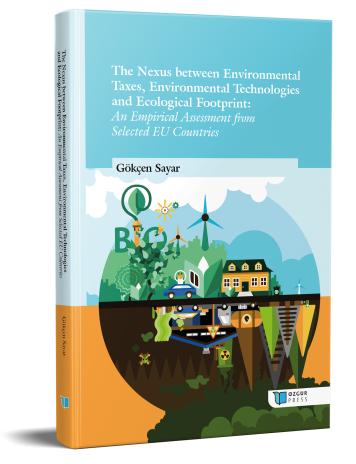
The Nexus between Environmental Taxes, Environmental Technologies and Ecological Footprint: An Empirical Assessment from Selected EU Countries
Synopsis
The relationship between environmental technologies, environmental tax policies and ecological footprint is at the centre of efforts to achieve environmental goals for a sustainable future. In this study, which analyses the relationship between environmental technologies, environmental tax policies, and ecological footprint, the ecological footprint was defined as the dependent variable, while environmental tax, patents on environment technologies, and renewable energy were determined as independent variables. Additionally, gross domestic product, trade openness, and foreign direct investment were included as control variables in the model. The analysis incorporated a sample comprising chosen EU member states, and due to the shared constraint of data availability, annual data spanning the period from 2003 to 2018 were employed. According to the panel cointegration test results, it has been observed that there is a long-term relationship between environmental technologies, environmental tax policies, and ecological footprint. According to the results of the Konya causality analysis, it was concluded that there is a causal relationship between the variables included in the model and ecological footprint in different countries. In line with the findings obtained from the study, it is recommended that governments make regulations such as environmental taxes and encourage investment in environmental technologies to reduce environmental degradation.

